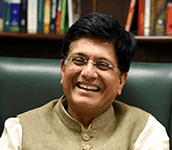May 29: In a story that challenges the boundaries between personal liberty and national policy, CRPF constable Munir Ahmed from Jammu and Kashmir has found himself entangled in a legal battle that may redefine how India handles cross-border marriages in sensitive regions.
Ahmed, who served as a Central Reserve Police Force jawan for over a decade, married his cousin Menal Khan, a Pakistani national, in 2022. According to Ahmed, he had informed his department of the marriage in advance and had complied with the necessary procedures, including disclosures and paperwork. Despite this, he was dismissed from service earlier this year. The dismissal coincided with the rising scrutiny of foreign nationals in Kashmir, especially after the deadly Pahalgam terror attack in March 2024, which intensified administrative vigilance toward Pakistani citizens residing in India.
The controversy deepened when Menal Khan, who entered India legally on a visa, was served a “Leave India” notice while her application for a Long-Term Visa (LTV) was still under government review. Ahmed’s dismissal order cited the concealment of his marriage as a breach of service conduct. However, Ahmed asserts that his communication with higher authorities was transparent and documented, describing the action against him as arbitrary and unjust.
The Jammu & Kashmir and Ladakh High Court has now stepped in, issuing notices to the Ministry of Home Affairs and CRPF, demanding a response to Ahmed’s petition. The constable has challenged his termination on constitutional grounds, labeling it as “capricious” and lacking a proper inquiry or rationale.
This case touches a raw nerve in India’s security apparatus—especially in states like Jammu and Kashmir, where the geopolitical landscape remains delicate. But it also raises essential questions: Should a person’s right to choose their life partner be overridden by fears rooted in national security? Where does administrative caution end, and personal liberty begin?
While national security is paramount, administrative actions must reflect fairness, accountability, and respect for due process. Dismissing a serviceman without transparent investigation sets a concerning precedent. If allegations are proven untrue, it signals a deep flaw in how sensitive personal matters are evaluated within government forces.
Munir Ahmed’s petition is more than a legal challenge—it’s a call for balance between vigilance and justice. His story reminds us that protecting the nation must never come at the cost of undermining its democratic principles.


















